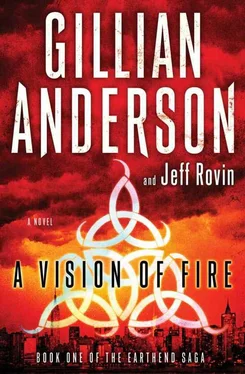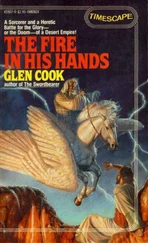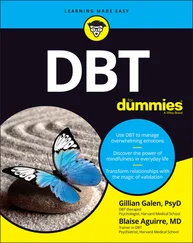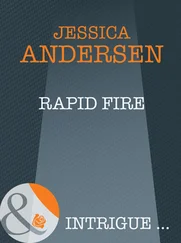Caitlin turned the screen off and spent the rest of the cab ride in uncomfortable silence. It seemed that war fears rode the air with their own wireless source: people. Maanik and her mother had given them a personal face for Caitlin.
It was with a great sense of relief that Caitlin walked into her top-floor office on West Fifty-Eighth Street. She experienced such a sudden feeling of comfort that there was almost an audible click. After going through her routine—coffee on the thumbprint coaster Jacob made when he was five, purse in the lowest desk drawer, phone in the top drawer and muted, coat on the hanger behind the door—Caitlin reviewed her schedule, but her mind kept shifting back to Maanik.
A diagnosis of schizophrenia was premature and sketchy, since schizophrenics understood that there was a “them” and a “me.” Maanik had no “me” during her episodes, at least not the “me” she’d been for sixteen years. But a diagnosis of dissociative identity disorder—a split personality—wasn’t accurate either because multiple personalities rarely had delusions. They lived in the real world. Maanik was obviously reacting to something that wasn’t there. A form of petit mal or grand mal was a possibility, yet sufferers would not respond to hypnosis the way Maanik had.
One size did not fit all here. What was Caitlin missing?
She wanted to see the girl when she wasn’t experiencing the cycle of behaviors. Even watching her quietly eat dinner would help Caitlin establish a baseline and get a firsthand sense of who she was.
Give it a rest , Caitlin told herself. She had never healed anybody on day one, and besides, lingering over one case was a poor way to greet another. Her eleven thirty appointment would be arriving in about ten minutes and she felt the relief of… not normality, there was no such thing, but of having an established therapeutic history and many more months to devote to the work. Neither of these essentials was available with Maanik.
Why was she so different from any kid Caitlin had ever seen?
She had a sudden inspiration to search for her online, to see if there were any videos of her before the assassination. She kicked herself for not thinking of it before. She expected the Pawars to keep something of a lock on her public persona; the daughter of a diplomat had to have a strong concept of privacy. But there were several videos on her school website of Maanik engaging in debates as part of their Model UN. Caitlin clicked on one and noticed immediately how sure the girl was of herself. She certainly was not faking extroversion, which made these repeated inward collapses even stranger. In another video, Maanik was starring as the fiancée of an eccentric British aristocrat in a school play; at one point she gestured excessively and intoned, “I’m not diseased. I’m mismanaged.” Maanik rolled her eyes and the line got a huge laugh from the audience.
She seemed utterly normal, entirely comfortable in her own skin, impressively so. There were none of the tics or hints of darkness that shrouded most of the kids Caitlin saw. Could the assassination attempt have done so much damage? If her father had died or been wounded, yes. If her mother had suffered some kind of collapse, perhaps. But those severe triggers did not exist here. The reaction simply was not proportionate. Caitlin needed to think this through further but her eleven thirty was knocking on the door.
Hours later, after five more appointments and two conference calls, it was time to pick up Jacob. She could tell as she approached the front door of her building that the temperature outside had dropped considerably. She snuggled into her coat collar and caught herself humming “Let It Snow.” As she stepped outside her humming stopped and she suddenly felt a chill that had nothing to do with the weather. It ran up her backbone and tickled out along her shoulder blades like a small animal. Instinctively, she moved closer to the wall, stood still, and looked around.
What the hell?
Her heart was thumping harder; her breaths grew shorter. There seemed to be a cold wind against her arms but there was no motion in her sleeves. She had goose bumps.
Get a grip , she told herself.
She saw people picking up their cars from the garage across the street, a smoker by a tree in the tiny park on top of the garage, a group of college students hurrying by her, but nothing to explain the chill that remained. She felt exposed, pinned there as though these other people existed on another plane and she was alone. Or nearly so.
There was also an unsettling sense of being watched. It was not a flash of exposure, like walking in front of a tourist taking videos.
Barbara was right , she thought. She was so deep in other peoples’ issues she had lost her own protective skin.
A burst of greetings startled her as students from the Roosevelt Hospital day program hustled out of the building and enfolded her in their group. Caitlin walked to the subway with them, pushing the noise and shapes of the city away, but not the creeping chill that danced along her spine.
Dodging and maneuvering with Jacob through the crowded subway, Caitlin tried hard to shake the odd paranoia that had seized her outside her office, but it was like swallowing an oversized bite of a sandwich. She usually tried to make a game of their dash through rush hour—Crazy Football or Running with the Gazelles—but not today. Jacob was deep in his own thoughts and she just wanted to get home.
The third-floor hallway seemed unusually quiet, the clang of the keys uncommonly hollow. It reminded her, unpleasantly, of the feeling she’d had at the Pawars’ apartment. A sense that she was somehow in danger. Not Jacob, just her.
Unlocking the door, she made a mental note to talk to Barbara about this, then happily turned her attention to roasting broccoli and defrosting and heating a container of congee for dinner. Jacob went straight to his room. They had arrived home just in time for his weekly online chat with his father. Caitlin was surprisingly glad for Andy’s call right now; even abnormal normalcy was welcome.
Andrew Thwaite, divorced with three kids, was a sociologist from Sydney whom Caitlin had met in Thailand three weeks after the 2004 tsunami. He had joined one of her relief efforts, which Ben helped to coordinate through the under-secretary-general of the UN Office for the Coordination of Humanitarian Affairs. When they met, Caitlin felt that he was “right for right now,” as she’d expressed it to Ben.
“The people I’ve talked to say he’s kind of a d-bag, Cai,” Ben had said.
“Oh, you checked?”
“Captain of your team,” he said evasively.
“Well, he’s smart, he’s entertaining, he isn’t making any promises to be something he’s not, and he’s six-three and ripped.”
“Uh-huh. I know the type, a swaggering narcissist.”
“Strong words, Ben.”
“I’ve been living in the shadow of miserable hotshots like him my whole life. He’ll use you and leave you in the dust.”
“Only after I leave him in mine. Hey, is this about me or you, Ben?”
“Fair enough,” he conceded, “but I think you’ve entirely misunderstood the meaning of ‘relief efforts.’”
The disagreement ended in laughter. But after passion trumped caution and she found out she was pregnant, she decided to keep the child. Andy was notified and had stayed far away, making everything blessedly simple.
Until recently.
Around the time Andy’s youngest kid went to college, in 2011, he’d suddenly asked for weekly video calls with Jacob. She had no objection to that. She and Jacob had discussed it repeatedly and Jacob seemed happy to accept him on the same level as an upstairs neighbor. But six months ago Andy had asked Caitlin why she hadn’t chosen a cochlear implant operation for Jacob when he was younger.
Читать дальше












